|
It is not looking for lost pets. We used to get that question a lot. "Our dog ran away, Can you help us find her?" No, we can't. We also aren't an animal shelter. But the words "search" and "rescue" conjure up specific things in peoples minds. Neither are accurate.
Search and rescue is looking for lost people, dead or alive. Like the old west without the bounty. K9 search and rescue is looking for people with a dog. Emphasis on "looking." If you want to actually find someone, alive or dead, then you shouldn't get into SAR. Most handlers go their entire career without finding anything. The odds are just not good that you will be the one given an area to search that has the one missing person in it. Odds are better the longer you are in SAR. But in reality a lot of people are never found. A lot of bodies are not recovered. Part of that reason is that you, the handler, aren't in charge of the search. You go where you are told by law enforcement. If their information says search this farm but not that one, then you only search the farm they asked you to. You are still bound by all the rules of society, like the Constitution. SAR dogs do not provide probable cause. So you go where LE says they thing you should look. End of story. A SAR dog will train for two years before certification. Did you read that? 2. Years. So if you bring your 8 week old puppy to training and can manage to teach an indication by 4 months, then you could have them certified and ready to search by 2.5 years. But its unlikely. Its more likely your dog will be at least 3. And if its your first dog, well...you always ruin your first dog. So just think what you would do with 2 years. That's half a Bachelors degree. Or two Superbowls. Training a dog takes time. Even more time when you need help. You can't hide for the dog AND be the handler. You need someone to help hide, or hide the cadaver sources. The type of people that are going to touch stinky decomp are also SAR handlers. They have their own dogs to train. Now you have a couple people training a couple dogs and then you become a team. I laugh. That's part of the reason it takes so long. Groups of people take a long time to do things. Two years is the average. I've heard lots of people say, "my dog loves to smell things. It followed our trail into the park all the way back home. He would be great at search and rescue." Well, actually with that little information your dog would suck at it. First, because you are not searching for your own scent. And following a scent in the direction it came from is pointless. You need to know where they are, and not where they started. Besides, SAR dogs want to be out, not at home. Thinking that you wandering dog would be good at SAR shows how naive you are. And how shocked you will be when you get out in the woods. Most people quit SAR, its just there. Its a fact. They picked a pet they thought was hyper, but in reality can't work more than an hour. They can't give up two or three days a week to train because the spouse doesn't want to take care of the kids that long. They don't want to poop in the woods behind a tree (true story.) They are smokers and are unwilling to quit. There are tons more reasons people end up leaving. SAR is a hug time commitment. Its dirty and uncomfortable. You aren't a super hero, in fact its unlikely you will ever find a missing person. What you will do is spend a lot of time training a dog to finding someone and then a lot of time doing paperwork about what you did in the woods. I still dream of making the big find. You know, locating a missing child, gathering them up in your arms, and running them back to their distraught parents waiting with TV cameras. I'm sad to say its never gonna happen. In my cadaver dog's career she only ever made one find, and that was locating bones from a body that they already found. Forensics requested dogs to assist in locating the bones that animals had scattered. We had a good chance of finding something, and we did. Two somethings in fact, part of a foot we thought. It was a tragic murder. But when Juno indicated bone I had a huge smile. We don't deal in reality, we deal in the game of finding things. That was the one time my dog won. It was awesome. And it never happened again. If you want to "win" you train. If you want to search, well, pack a lunch because this is going to take a while. I also trained a live find dog. She is awesome. A tireless poodle that found 3 people in the rain over 160 acres. She did not certify because she would not sit for 15 minutes. What does that have to do with searching, you ask? Nothing really. But the team I was on felt that one test was the measure of a search dog, and without it she could not certify. No way around it. So I left that team. There is a lot of ego in SAR. A lot of antiquated rules. So while SAR is working your dog, its also a lot of working with people. Way too much, actually. You have to politic on any team. Be nice to the people that grade your tests, even if they are wrong. I've even agreed to a few things that I was totally against because I had a test coming up and didn't want it to influence the outcome. And it would. So if you aren't ready to kiss ass and keep your mouth shut, SAR may not be for you. Are you still interested in SAR? Cool. Go meet some teams. Read their standards and find out what they are really going to ask you to do. Then ask LE if they actually call that team for a search. Some teams are not popular, they have a bad reputation. I was on a team with a good reputation, but I should have asked more people. My team was considered elitist, and while LE liked them a lot of people in the dog community did not. But it would be even worse to train for two years for a game you never get to play. Way worse. SAR is a lot of field work. You need to know how to navigate in the woods. Some people just can't. No matter how long you teach them or how you explain a compass, they just can't grasp the concept of looking at a flat piece of paper and translating that into the mountain in front of them. I brought a friend into SAR that got a dog just for the work and then left because she could not understand which way was North. What do you do with your beloved pet then? Keep it, rehome it, find another purpose? SAR is awesome. SAR sucks. Both of things happen at the same time. Just like life. You take the good with the bad and if the good outweighs the bad then it makes sense to you. If it doesn't then you leave. You move out of state and create a new life. Maybe you try again, maybe you decide you've had enough disfunction and take up knitting. Oh, wait. I'm projecting. But seriously. K9 search and rescue is a lot of work, a lot of time, a lot of pain. Its also the most rewarding thing I've done. At the drop of a hat I can be in the woods with my dog, my partner, helping bring home someone's grandfather that walked out of the house the night before and never returned. People in this kind of work, and its normally unpaid BTW, do it because they love to work their dogs. But you can get that same satisfaction from one of a dozen AKC or UKC events and without all the mosquitoes and sunblock.
0 Comments
I mean, ten minutes and 59 seconds of searching in moderate rain. That is what search and rescue people do in inclimate weather. I used to train all the time in freezing cold, snow, rain, wind events, you name it. Now I am just training on my own. The rain doesn't stop us. It doesn't stop death. II had to leave my search and rescue team when we moved to New Jersey. I located other K9 teams but during the summer they repeatedly cancelled training. I'm not used to that. In VA we trained as planned. Training was only cancelled if there was a search or the location we were training shut down, as it did at Prince William Forest during a blizzard. My exodus was a little more complicated than my husband took another job, but that is a story for a different time. Right now I have a source waiting in the woods for Juno to find it. I had not expected it to rain today, as I placed the source 24 hours before, but it really doesn't matter. She can search in the rain. Its pretty nice living in the middle of the woods and having easy access to training areas. I used to have to leave sources wired to trees in larger parks, and come back another day to train on it. Now I just walk out the door, which is great because its been a while since Juno was searching, and I know she likes to be busy. I used this search training to take a look at the woods beyond the fence. Its pretty well hidden by underbrush in the warmer months, but the rock formations are very interesting if you can get past the briars. There was definitely critter smells to distract her. Fox, bear, and deer are common. I've had to rescue the cat from a fox once already. So the woods beyond the house are a perfect training area. She can't get to them unless I take her, but I don't have to get a babysitter either. Yes, I have a child. Working up to the find was uneventful. Its not really the sort of thing that people want to read about. The dog sniffs, the dog runs around, the dog comes back. She is working, but only I would notice the slight changes in her behavior that indicate if she is smelling critters or smelling human decomposition. I had actually forgotten the precise location of the source when Juno look a hard left and stopped. Her head disappeared behind a rock and then she lifted it to look at me. She gave a little chuff and then a louder bark. So I said good girl and fished her ball out of my pocket. Her favorite reward is a blue Chuck-It Whistler ball. Just the sight of it gets her excited. I checked my stop watch. 10:59. I wanted to get 10 min out of her. I would have to put it further away for a longer search, but this was to make sure she remembered the game. I threw the ball a dozen times, bouncing it from rock to tree so she had to change direction a lot. Then I put on a latex glove, because I didn't want to come back out to retrieve the source, and headed back to the house. Juno dropped the ball at my feet and when I leaned over I noticed that the sleeve of my jacket slide down over my glove and made contact with the top of the source jar. Gross. Guess I'll be washing the jacket. I tightened up the cuff and went on walking and throwing the ball. I can be strict with washing. I think its gross to have my clothes touch the sources. Of course the dogs end up touching sources, even licking them, but that doesn't give me a moment of pause. But my jacket touching it? Yikes. I've seen people put latex gloves on to handle a source then forget to take the gloves off and start touching other things, like their water bottle or brush hair out of their face. I choke just thinking about it. Often SAR people take these things for granted. We have just worked around them so long we handle them like anything else, but they aren't. Back in the yard I change my latex gloves because I need to touch the freezer and the outside of the source box and I want to keep those places clean. Its a policy of mine. I use a lot of latex gloves. One glove for the clean box, one glove for the dirty source. Oops, I touched the lid. New glove, start over. This is my Garmin fitbit type device. And yes, that is the side of my jacket that touched the source. So now I need to clean the watch also. I never used to wear a watch, so it wasn't a problem. But the Garmin has a stop watch so I get better accounting for the time I train and be more accurate on my training logs. Its actually the first time I used it for this. I've been moving, then raising a Malinois litter, and now the holidays. But the working dogs need to work. I even switched my live find dog to Nosework, which is also a different story.
So...pouring down rain, a dirty jacket, and a happy dog. That really was the point of all this. Juno is 6 years old. She already certified in cadaver. She still has a couple more years of searching but I would have to locate a team that I can work with. I'm not willing to let her skill set just go. She's a very committed search dog. Unfortunately SAR involves people too. People with egos and histories. The longer you are in SAR the more mired you are in your ways. Don't get me wrong, there is a lot of expertise in the old timers. But there is also a reluctance to progress and upgrade. Technologies get better, you have to change with the times or become obsolete. Until I find out place again, we have to find the time to train on our own. Like most people, you prioritize your time for the things that are important to you. I may not wear a team patch but I'm still dedicated to SAR. I like it. I'm good at it. I'm just waiting. In the rain. Its a good thing I like the rain. I keep an eye on sales, not just around the holidays. In general, my dogs don't care about Christmas. They only care that I won't let them near the tree. On this Black Friday I started getting emails about sales, or posts on FaceBook. So here are some things I located that might interest you. 1) AKC is not cheap. I got a notice on FB about sales on AKC. Sike. If you click on that link you are gonna discover that the AKC didn't put anything on sale. Don't take my word for it, go ahead and click it. 40% off "select" items. I'll translate, 40% off of things they can't sell and the rest is overpriced. They are hoping you will see something else and pay full price, but the goods they have are half as much as Wal-Mart. Not that I advocate the small business killing, soul draining, Made in China conglomerate that is Wal-mart. But if you just need a dog bed you can get it cheaper elsewhere. 2) If you want expensive beds you can try LL bean. Their usual Christmas sale involves getting a $10- $20 gift card for every $50 you spend. Just today is 20% off if you spend $50. But you still have to spend the money. They have nice custom things, and if the item falls apart in the first year their customer service is very nice. But in reality you will do better and pay less at Costco for a dog bed. And those I have the dogs LOVE. 3) Chewy.com has some of the best deals all the time, not just on holidays. When I want to compare prices I look to them first. Their customer service is great. Whenever I have had an issue they fixed it fast, and I got something for my trouble. They ship fast and free, most of the time. 4) What should you get the dog lover for the Holidays? I recommend the really neat items at Black Dog. They are in MA, and even though the prices are mainstream, the items are good quality and very cute. I am slowly collecting a selection of coffee mugs. I even asked Santa for the new blue Striper mug. Its worth a look. The pub glasses looked to be a good deal. 5) A small dog rescue decided to make dog wreaths this year on Etsy. They sold out. BUT...they will likely have more next year so keep them in mind and save the business in your Etsy profile to be notified when they make them again. They were around $38, which is pretty good. And they were very cute. They benefited a rescue, also. What else can you want? Its win-win. 6) For people that love the outdoors, check out these dogs topiaries. You can purchase the wire frame or get it already entwined with greenery. They are not on sale, that I know of. I think that the thought matters more than the sale price. Who needs another pug tie? So if you are looking for unique this may help. If you didn't find it on Etsy, anyway. The truth is that there aren't a lot of sales just for the dog. Black Friday is about getting the left over items out the door, and electronics are the most discounted. Cyber Monday might get you free shipping, but its unlikely to result in much sales on dog chews. The rest of December will prove to be a study stream of sales and deals, so keep your eyes open and check the junk mailbox for email notices of sales. How many bull pizzles do you need? I don't know, but I would look to get them on Small Business Saturday, where you can get them right away, gift them when you get home, and check the label to make sure they aren't from a foreign company that irradiates them.
I used to try and reason with people about such a notion. That "greeders" as the animal rights activists would say aren't actually making tons of money off breeding puppies. I know a handful of breeders. None of them are making a living at this. The drive-thru window operator at McDonalds makes more money, and if they are full time the get benefits. There is no such thing as "full time" in responsible dog breeding. There is "all the time" plus "on call." I'll show you how this works. You start with one awesome dog. You pay for a fully registered dog, either AKC or UKC or some other reputable registration. That would NOT include the Continental Kennel Club or American Pet Registry. If you breed for one of those you can punch yourself in the face for me. Thanks. You paid, if you are lucky like me, $1000 for that dog in 2010. And you train it, feed it, buy it cool toys that it will just destuff and poop out on the yard. You get health testing done like hip x-rays ($200) and elbow x-rays ($200) and a heart auscultation ($210) and eye check ($50.00) and thyroid panel ($150) and then you send all those results to OFA to publish and you pay them to put it on a website for the whole world to see ($65). And you go to a couple shows or competitions to earn a title, each costing roughly $30. It takes between 3-5 successful competitions to get the title and then you have to pay the AKC or the UKC to recognize that you did receive the title. That is another $25. There is training fees from professional courses around $100 a pop, and then gas and lodging to leave the State to compete. By the time your dog is old enough to breed you have put a minimum of $3000 in, and that doesn't capture the gas, the food, the regular vet care. If you wait longer to breed like me, that just ads up. If you "compete" in search and rescue, don't bother to count. Its around $12,000 a year. And Juno did that for 5 years.  So my search and rescue time gets written off in my taxes. You get a standard deduction, sometimes you get to claim a little more. Sometimes less. But that doesn't get me any money, it just means I pay $2000 less to the government. Now you might think that all that is unrelated to breeding, but its not. Because it is those activities that make your dog worthy of breeding. Its seeing that your dog can be trained and can work that makes people want a puppy from your dog. Everything you do with your dog makes your dog. I chose not to breed Juno until she was 6 years old. I chose a stud, and that cost $1200. Then I had to drive to OH to make the breeding happen. The trip alone was over $600, with an infant in tow. Then there was 4 vet visits to make that breeding happen, another $800. You have to increase her food and give her supplements, $300. Whelping box $250. Whelping supplies, $230. And now come the puppies. 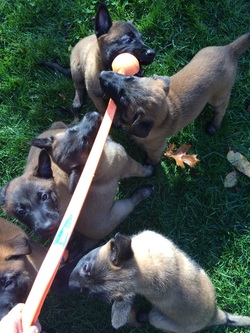 For 8 weeks you are on call 24/7 for strange noises, cries, barks, whines. You have to create a kennel area in your house with a crate, padded flooring, wee wee pads, wire fencing. That was $500. And then you have to clean it twice a day, launder the towels two or three times a day (which is a cost you will never capture). Give them toys, change the toys, worm them, feed them, bath them, train them. You can't get back your time, and you can't put a price tag on it. Although the Puppy Culture DVD is $80. For me, I received $1300 each for 7 puppies. That's $9100. I spent $9357.24. A subsequent litter will be able to use a lot of the same items like the whelping box and the kennel system. So that cost won't be incurred again until they wear out. I'm not going to have enough litters to wear them out. Its more likely they will get lost or broken in a move than to be worn thin by puppies. In fact, Juno will only have one more litter. So, each of my puppies went home socialized and healthy. AND I added prepaid AKC registration, prepaid ISO microchip with AKC reunite. A puppy training book, Lupine leash and collar, new puppy kong toy, and toy that smells like the whole litter ($85). I can laugh now because I didn't charge enough. But that is ok. I have these pups in good homes. I didn't get into this to make money. I decided to raise the price for the next litter, and will provide all the same things for the pups. The stud fee for the next litter is also $1200. The medical AI will still be around $800. If there is a problem with the whelping, I'll cover that also. I could have just 4 pups, or none at all. The ultimate truth is that good breeders get health testing and care for their puppies, so they are hoping to break even. Some years you are ahead and some years you are behind, but in total we spend more in the years leading up to a breeding than we will ever get back from selling a puppy. The goal of a good breeder is to better the breed. That could be through temperament or structure, or even just new genetics. They look to these breedings to find their next dog. One that will continue the work they started. But even that is a gamble. There is no guarantee that that keeper pup is going to be good enough to carry on the line. And we haven't even looked at the fact that someone might return a puppy. Breeding good puppies is a job. It takes dedication. On this first litter I cared for a puppy for two extra weeks until the owner could pick him up. I cared for one puppy an extra week and then delivered him 4 hours away. Those aren't normal services a breeder provides, but they indicative of someone that cares. If you ask my husband, I care too much.
I'm not trying to sell you a puppy. I am trying to sell you on the idea that you should demand good breeders. You should not purchase a puppy from a newspaper ad for $200. One that has no proof of health testing or lives exclusively in a barn. A pet store will charge you $2999 for a puppy that comes from conditions you will never know. The breed clubs I am involved with make breeders promise not to sell to a pet store. Good breeders put time, money, love, and knowledge into breeding and raising a litter. Its the kind of American ingenuity that we should promote and champion. In a world where you can get plastic china garbage in Wal-Mart for $1 we need better quality not more quantity. You might have to wait 6 months or a year to get the puppy you want. So? And don't overlook a reputable rescue. They also care and feed and train their dogs to find them new, loving homes. Have I been rambling? What was my point....Oh yeah, good breeding costs money. Much more than you paid for that well-bred puppy. Now its your turn to put in the time and the money to make that puppy into a great dog. It takes much more training then genetics to get a great dog. You owe it to the dog, and the breeder, not to ruin what they started. How much have I spent on pet dogs that are never bred? Oh, thousands. And I wouldn't do it any differently. So you just got a puppy. 8 week old fluffy cuteness that licks your hand and snuggles your face? Nope, that's a kitten. 8 week old puppies are a little different. They poop, pee, whine, bark, chew things up, and barf on the Persian rug you inherited from your Great Uncle Chester. Its only when they finally fall asleep that you say sigh and say "aw, I love puppies." 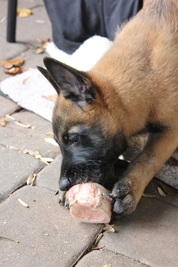 raw beef marrow bones will keep them busy, but not forever and too much fat can give them the runs raw beef marrow bones will keep them busy, but not forever and too much fat can give them the runs The puppy is chewing your hand, your arm, your pants, your hair, your imported Italian leather shoes and your sofa because its a puppy. That beautiful silver poodle also did these things as a puppy. In fact she went one step further and chewed a hole in the drywall just above the baseboard. Whose fault is that? Mine, because she had access to the baseboard. You don't blame the toddler for sticking a fork in a socket, you just cover the socket. Duh. Or take away the fork. But right now you have a barking, chewing, pooping, puppy monster. What do you do? First is take it outside. It needs to run and play. Take it outside, bring it back in, take it back out, bring it back in, and then take it out again. This evolution should happen once an hour, and that is just for housebreaking. If you are trying to teach anything else you need to add that to the list not replace it. There is no way around this. It would be like wanting to avoid cavities but refusing to brush your teeth. Does the pup bark all night? Of course, because its lonely and its looking for siblings that were there yesterday and now they are gone. Before bed you need to take away food and water and then go for a long walk. They won't sleep all night at first, but being tired sure helps. You can move the crate closer to where you sleep, or even *gasp* put the dog in your bed. It won't ruin the dog, it will learn not to sleep on the bed. But are you trying to get some sleep or prove to the puppy that it must now survive on its own in this cold, cold world? I've put a puppy in my bed before and it doesn't sleep on the bed now. Does your pup bark during the day? Of course, take him out to play. Then bring him back in and give him something to chew on. When he wakes up from that nap, go right back outside and start over. Walk, play, nap, repeat. This is really hard if you have a full-time job. So you MUST get a dog walker. Before 6 months old they need to come in 2-3 times a day. Otherwise your puppy won't be house trained. Pups have tiny bladders. If they get in the habit of going to the bathroom in the house, or in their crate, its very difficult to retrain them. You could also get a dog door, if you have a fenced yard. Just realize that housebroken in your home doesn't mean housebroken in other peoples homes. Its been three days and the pup is climbing out of the pen and barking. See above. Its not getting enough excercise and its stressed out. If you take a baby and put it in an orphange and then confine it to a crib its gonna cry and find a way out. So, at three days in you need to be honest, are you dedicated enough to see this through or should you take the puppy back where you got it and let it go to a better home? Only you can answer that. But if you are dedicated to the game then put a lid on the pen, either with wire designed for the pen or with a sheet. Some pens are easier to climb out of than others. Certain breeds climb much better than others. And its still barking? He's bored. Go play. I try to help people solve the issues that come up with puppies, or even adult dogs, because they think they have no options. In truth, most of the time, they were told exactly what to do and thought they could get away with a short cut. Well, as it goes "garbage in, garbage out." You can't fake training a dog, like faking Calculus. Or Civil Procedure. If you didn't read Pennoyer v. Neff the whole class if going to know it. So rest assured, your plight is not just your own. I even forget how much work puppies can be, but I deal with it. So if all these horrible things are happening then you need to go back and look at the basics. Did you set up the puppy area correctly? Did you schedule someone to walk the dog? Did you take off work to bond with the dog? Did you remove all the fun things from eye level that a dog can put its teeth on? And then, do you know what the dog needs? Because at this point whether the breed is right for you is irrelevant, you have the puppy now and every puppy is going to be the same. They are a puppy. Some bark a little less, some pee a little more. Look for solutions for your specific dog. Some want to cuddle, some want to swim, some want to play. But all of them have only one way of telling you that they need something. Next, find a puppy class. This is crucial One that will allow you to get around other puppy people, co-miserate, and find out that everyone is having a problem. And I mean everyone. I have three well behaved dogs and I add a puppy, I have the same issues. But the resolution is also the same. Exercise and socialization. For a little while you have to rearrange your whole life. Some times people don't believe that, or don't want to believe it. Your new normal is going to be pee, poop, barking, and teeth marks for the better part of 6 months. This is what you signed up for, didn't you know. If you didn't, then you batter catch up quick. Or resign yourself to failure. It is failure if you give up. According to the SPCA there are 70-80 million dogs in the US owned by 37-47% of the households. I'm thinking a large portion own multiple dogs, so they did this whole training and bonding thing more than once. Thus, its not impossible. Its not even revolutionary. Its just work, like losing weight or crocheting a Christmas stocking for your niece. It takes time and effort, but the outcome, oh man. The outcome is AMAZING. Don't give up. Lean in and be a dog owner. Ian Dunbar, Karen Pryor, Suzanne Clothier etc, all have published books and videos on training and dog relationships. Get into a puppy class! Get into a puppy play group. Get some digestible chew toys! And go for a walk. Its not rocket science. And if Neil DeGrasse Tyson is reading this and needs help, well, maybe you should get a cat.
If you find that you just can't do it. That its been weeks and the dog hates you, you are getting evicted, or you lost your job then take the dog back where you got it. Any good breeder or rescue will take the dog back. They want to see the dogs in good homes, not in animal shelters. If you do have to take a dog back, ok. But you need to think long and hard before you get another dog. Wait a long time. Get a cactus if you must, because it may be that taking care of other living things is not your strength. That is fine, acknowledge it. Not everyone is cut out to own a pet. Thank your lucky stars you didn't get something truly expensive, like a horse. #crazypuppy #ihatethispuppy #puppyproblems #puppyhelp |
C. CarothersHandler, Trainer, Breeder, Writer. We talk about dog training, gear, competitions, and thoughts of the dog. Archives
June 2018
Categories |
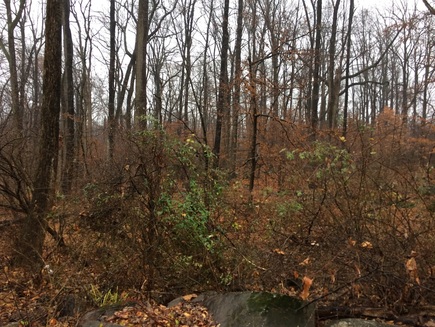
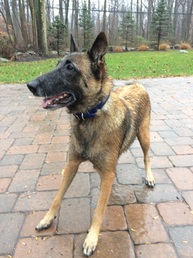
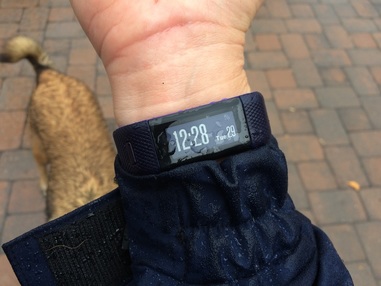

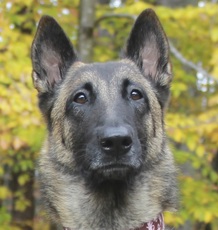
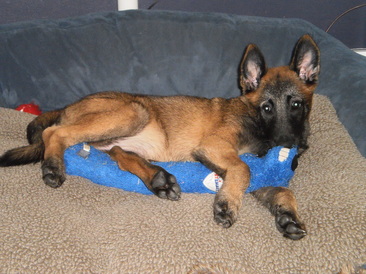
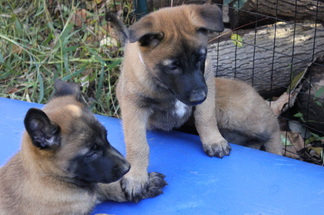
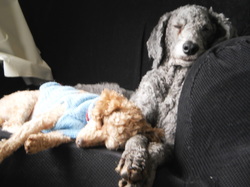
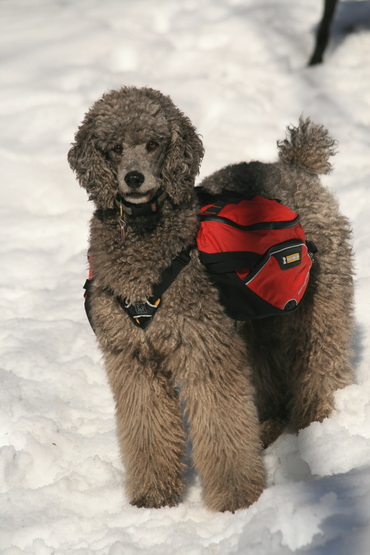
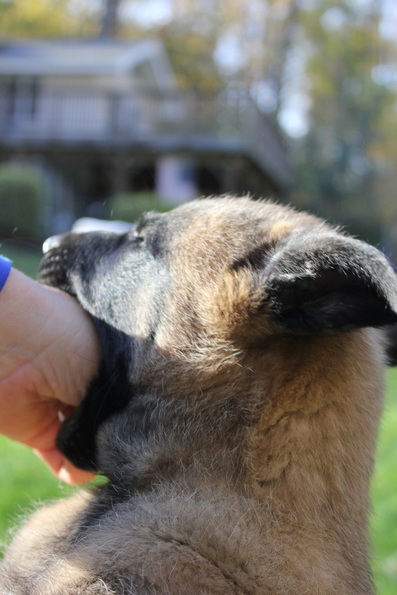
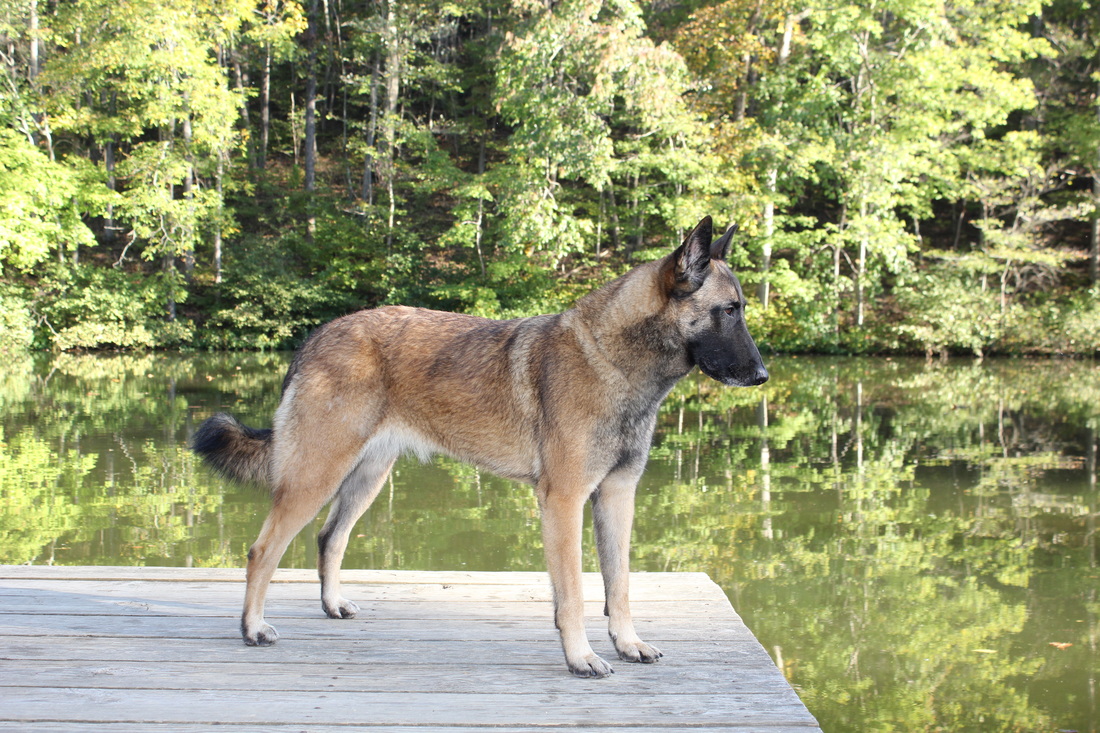
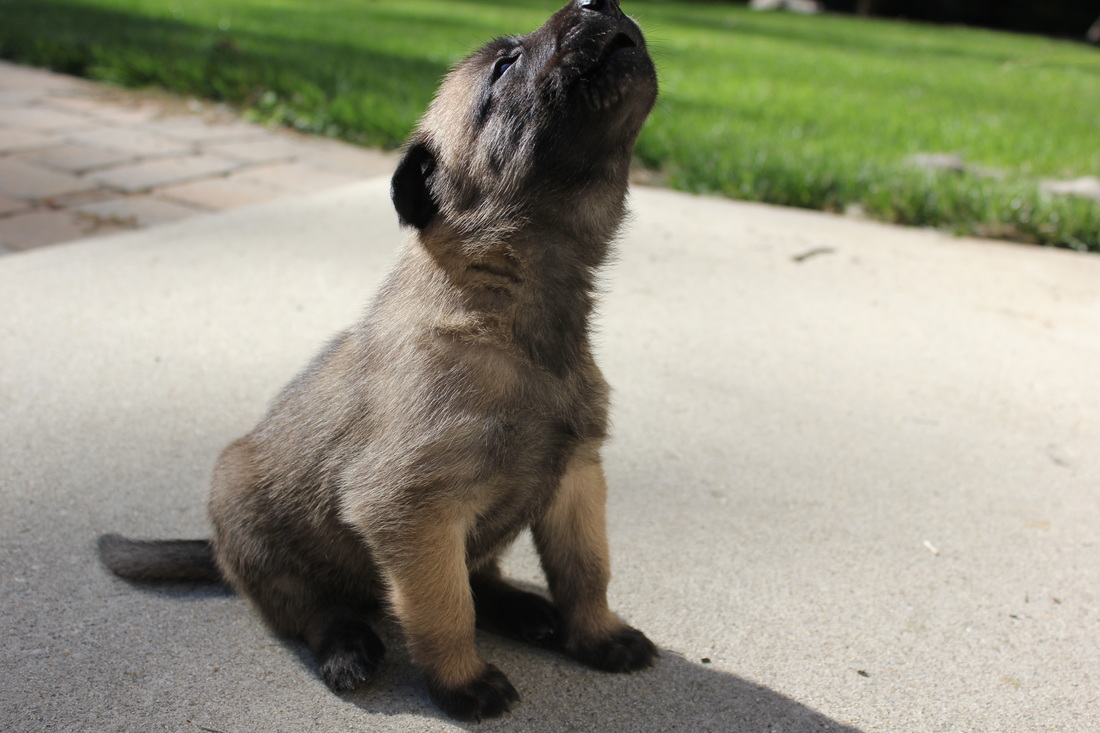
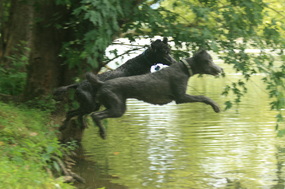
 RSS Feed
RSS Feed
